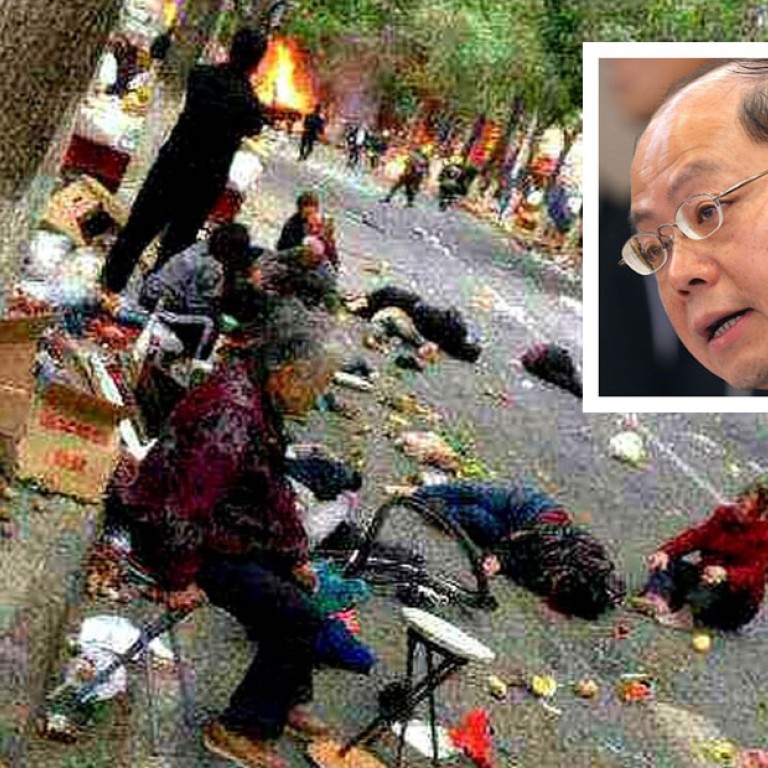
Bloodshed in China may raise Hong Kong terror alert level
Police chief says attacks on mainland are being closely monitored and the city's security will be reviewed after Xinjiang street market bombing
Hong Kong will review its security threat level because of the deadly wave of terrorist attacks on the mainland, the city's police chief revealed yesterday.
Commissioner Andy Tsang Wai-hung said the force was assessing whether the current "moderate'' alert level needed to be raised after Thursday's bloodshed in Xinjiang.
At least 43 were killed and nearly 100 injured in an attack on a street market in the capital, Urumqi, when assailants in two vehicles ploughed into shoppers and traders and threw explosives. One of the vehicles blew up.
Tsang said: "In view of what's happening in mainland China, obviously we will review what needs to be done and indeed, if additional measures are needed then they will be taken.
"We have been monitoring terrorist activities both around the world and in the region … and an increasing number of terrorist attacks in mainland China. We are watching this very closely." He added: "We have to prepare ourselves. And let me assure members of the public that all along, the Hong Kong government and the Hong Kong police have been preparing to avert such a threat."
The review comes as mainland police named five people blamed for the attack.
The police said they were part of a "terrorist gang" and influenced by "religious extremism".
Based on their names, they all appeared to be separatists from Xinjiang's Muslim Uygur minority, blamed by Beijing for previous atrocities. Police said four were killed in the attack and the fifth captured on Thursday night.
Watch: Show of force in China's Urumqi in wake of deadly attack
Security had already been tightened across the mainland after a bomb and knife attack at an Urumqi train station last month left three dead, including two attackers, and 79 injured. In March attackers brandishing knives killed 29 people at Kunming railway station in Yunnan province.
Earlier this month, a lone attacker injured several bystanders at Guangzhou railway station.
The attacks were all labelled "terrorist incidents" by Beijing.
Li Wei, director of the anti-terrorism research centre at the China Institute of Contemporary International Relations, said it was possible for Hong Kong and other major cities in the region to be targeted, but the possibility of an attack remained low.
He said: "We believe the attacks on the mainland were planned by radical Islamist forces overseas." Li described the attacks in Guangzhou and Kunming as "elaborately plotted''.
But he added: "Planning a terrorist attack in Hong Kong would be much more challenging than in Kunming or Guangzhou."
He said their most recent research suggested the terror groups were fragmented.
He said they were formed by relatively unsophisticated family member groupings equipped with knives and home-made explosives, indicating they were "not so well-financed and well-trained". But he warned that a pattern was emerging that showed the mainland attacks were becoming more high-profile and risky.
He said it was vital that security and law enforcement agencies on the mainland and in Hong Kong and Macau work together closely in exchanging counter-terrorism intelligence to prevent possible assaults.
Researcher Haras Rafiq of the Quilliam Foundation, a London-based counterterrorism and extremism think-tank, said Hong Kong could be on a list of potential targets because of the global reverberations an attack on the city would cause.
"It would be easier to breach Hong Kong, certainly the financial and business sector, than it would be in Beijing.
"It is one of the nerve centres of Asia," said Rafiq, a former member of the UK government task force set up to counter extremism in the wake of the 2005 London bombings.


